Full name: Lance Forman
Role: Owner & MD
DOB: 13 Oct 1962
Birthplace: London
Twitter Handle: @formanandfield
Website: www.formans.co.uk
Fun Fact (about you): One of my eyes is hazel, and the other two are brown.
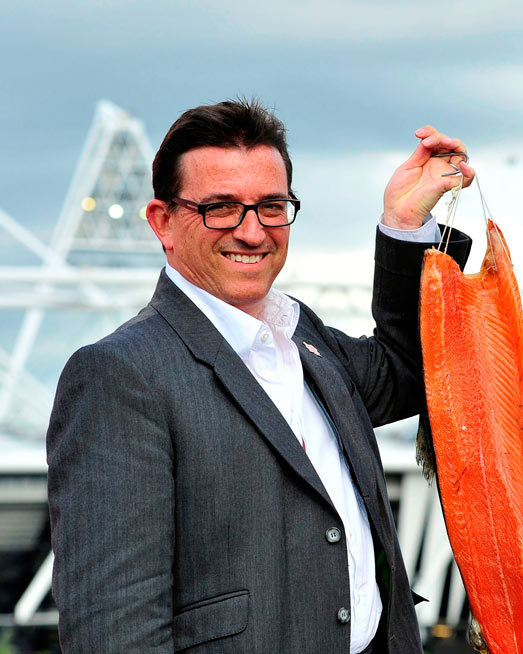
J: 107 years and counting, right? How did you end up taking up the mantle at Foreman And Field? Was it a matter of choice or inheritance? Are any other family members involved?
L: If you’re counting, it’s actually 109 years! We were founded in 1905 by my great grandfather and his son, and so H.Forman & Son. Forman & Field is a sister brand we created 15 years ago. I was weaned on smoked salmon but my career was a choice and indeed I spent 12 years doing other things before I decided, like the prodigal salmon, to return to the river.
How have you guys remained AND thrived as a family business in this era of corporate buyouts and I suppose, the recession of late?
We have always remained independent and have no outside ownership. Family businesses have a different strategy to corporates, and generally take a longer term view. The recession wasn’t so bad, what was far worse was having to deal with a compulsory purchase resulting from the Olympics, which totally distracted us from doing business in the five years before the recession kicked in.
What makes your fish superior/more premium to the stuff I’d buy in a supermarket?
You can actually buy our smoked salmon in a supermarket – Waitrose and Ocado. After 109 years of producing smoked salmon and almost inventing it, we know how smoked salmon is meant to be. Almost all the other salmon smokers in the UK have only come about in recent years as a result of the onset of salmon farming.
For them it’s all about producing to a price, for us it’s about quality. So what does that mean? It means using the freshest fish you can get your hands on and curing it with a touch of salt, smoking it with a touch of smoke, but neither hiding the quality of the freshness of the salmon.
When smoked salmon tastes like an ashtray, you have to wonder what cheap, old fish the producer is trying to disguise.
Leading from that, what should people look for as an arbiter of quality when buying smoked fish?
An easy method is to look at the ingredients; there should NEVER be sugar in smoked salmon. Sugar is used for three reasons, but they are all bad reasons. First, sugar is added because it’s hydrophilic, which means it retains water. When you are selling fish by the kilo, and you can sell water for the price of salmon, some think this is good business.
The business may be good, but the smoked salmon is slimy. Secondly, too many producers add too much salt in order to artificially extend the use by date. Aside from being unhealthy, it’s too salty to taste, so sugar is added to balance the salt.
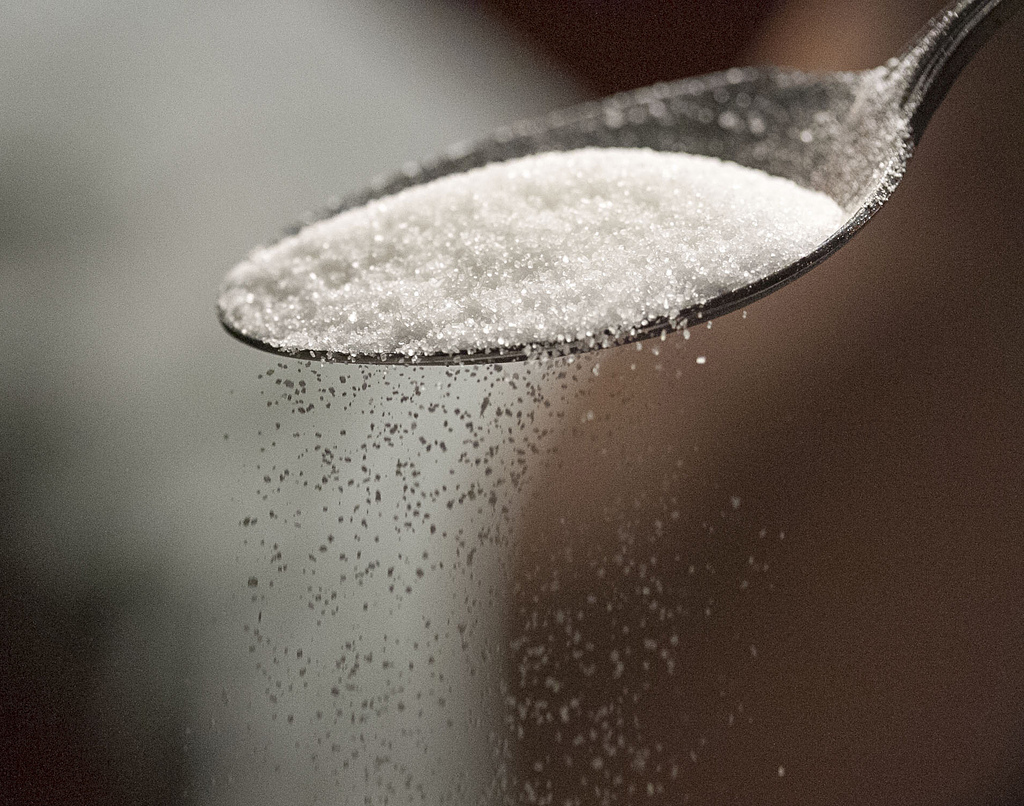
Thirdly and as mentioned, many salmon smokers add so much smoke, as it’s easy to conceal the quality of the underlying fish, but smoke can be quite bitter, so the sugar counter-balances this too. As said, there should never be sugar in smoked salmon, whether it’s Demerara, molasses, or plain old castor.
Tell us about your famous ‘London Cure’. What is it and how was it developed?
When my great granddad first arrived in the UK, from Odessa and started smoking salmon, he did not realise there was a salmon native to the UK so shipped salmon over from the Baltic, in barrels of salt water. When he discovered fish arriving each summer from Scotland down to Billingsgate market, he switched, as the sourcing of the fish was so much easier.
When he smoked the Scottish salmon, the quality was outstanding and so he introduced into the fine dining restaurants and hotels and food halls and delicatessens of London. He didn’t call it the ‘London Cure’ then but we do now to differentiate from other cures.
The London Cure is simply about taking the freshest SCOTTISH salmon, curing and smoking it, to that you showcase the quality of the salmon. Scottish smokers, often using Norwegian salmon (but still calling it Scottish smoked!) often oversmoke the fish, like kippers or smokies, so that the quality of the fish is hidden.
Smoked salmon, why not smoked mackerel (delicious), kippers or the like?
The ‘London Cure’ took off as Britain’s first ever home-grown gourmet food and chefs loved it because you could eat a whole plate of it and then move onto the next course without any after-taste. If you start a meal with a kipper, every course thereafter would be ruined.
Whilst smoked foods can taste delicious, the smoked flavour does linger on the palate destroying the ability to savour anything else for a while after.
I noticed lots of famous and interesting faces on your photo wall on Fish Island – could you elaborate a little on that?
Forman’s has been around a long time, so we have a lot of famous followers. Winston Churchill’s daughter was a big fan throughout her life and ordered personally from us every Christmas. She will be missed. We have served Royalty, Prime Ministers and Presidents as well as had our smoked salmon enjoyed by comedians, rock stars and sporting celebrities.

Seb Coe does not eat fish, apart from Forman’s smoked salmon. Boris was recently interviewed in Company Magazine and when asked what his favourite bagel filling was, responded “There’s nothing better than a Forman’s salmon bagel. Delicious”. To thank him, we have just launched “The Boris Bagel” donating 10p from each one sold to London’s Biggest Breakfast.
Boris officially opened Forman’s premises, but the former Mayor, Ken Livingstone has also dined here with me. Maggie Thatcher is also on our wall being personally handed a Forman & Field hamper by me. We share the same birthday.
Could you tell us about you guys’ move to Fish Island? I read it described on your site as a ‘battle’ with the Mayor’s Office…
How long have you got? One day I will write a book about it. Our business was one of 250 which were being forcibly evicted to make way for the Games and I became the main spokesperson sticking up for the businesses and the 12,000 employees affected. The largest zone of manufacturing in London was about to be wiped out for three weeks of sport.
It was a huge challenge because no one would support us. We invited Ken Livingstone, Tessa Jowell, Seb Coe and just about everyone who might be able to help to come and discuss, but they all stayed away for fear of the media recognizing that there was an issue here.
Our battle ended when I was due to appear in Court to cross examine Seb Coe. The day before this was due to happen, I received a phonecall saying if I drop my cross examination, the Government will do a deal with us. Naturally I did the deal, but I also wrote to Seb saying.. “You can run… but you can’t hide”. Since then we have kissed and made up, well maybe not kissed, but as ours is the only fish Seb now eats, that’s probably deserving of a kiss.
Tell us about your various businesses, along with the smokehouse, there’s 5 in total right? – including an art gallery?
H.Forman & Son is our wholesale smoked salmon business, supplying chefs, restaurants, hotels, caterers and food stores, not only in the UK, but exporting across the globe. Forman & Field is a home delivery service for the best of British food. We were pioneers in the British food revival, talking about it, making it and selling it, when the rest of the world was still enjoying the wonders of nouvelle cuisine.
We have a restaurant too, in house, which is going from strength to strength. Five of the last six months we have been chosen as Diner’s Choice on top table. As well as the food, not a bad space for the occasional celebrity spot. Our wall of fame shows who’s been in. We even hosted the semi-final of Celebrity Masterchef.
On top of our smokehouse we have a large venue where we can host private parties and events from anything from 100 to 1000 guests, with a roof terrace which has the best view it’s possible to get of the Olympic stadium.
Finally we have an art gallery. Being located in Fish Island, Hackney Wick, means we are in the hub of the largest art community in Europe and so with our fabulous space it seemed like a no brainer to fill our walls with artwork from the locals to help promote their art to our high profile audience.
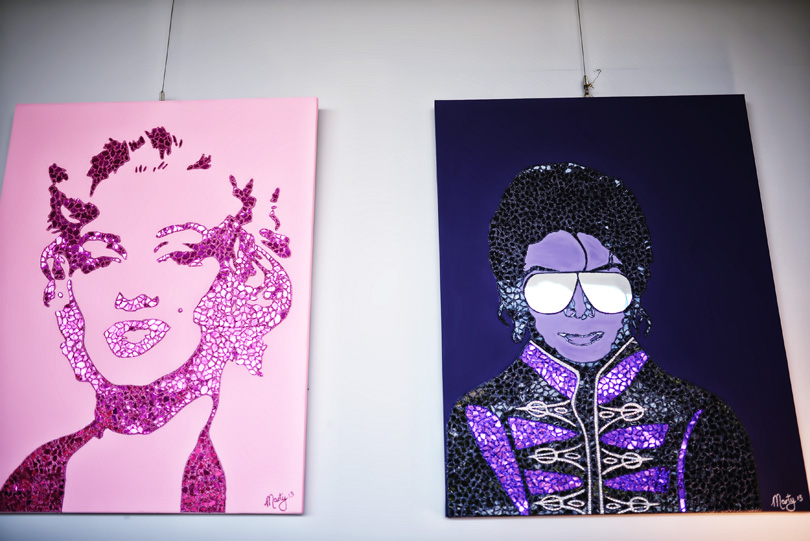
Asides from the smokehouse, I’d like to ask you about how you guys got started sourcing and delivering seasonal British produce. When did that begin? How do you network and work with British producers today?
As said that all really started when we set up Forman & Field. Of course we have always believed in local food and we are not doing all this because it’s the latest fad. We have always been doing it. Local food is all about being able to get food to consumers quickly.
If you can, you can keep it natural without preservatives and stabilisers and therefore it is likely to taste better and be better for you. However, the point of local food is often missed and people think it’s about saving the carbon footprint. Whilst that may be a good thing to do, from a purely food perspective that’s not the reason local food is important.
Seasonal food is important too, simply because it helps us appreciate the seasons when we have to wait 9 month for British strawberries after summer is over. Ye we can get Californian strawberries, in season, and quickly too as they’re flown over, but when you have them all year round, you appreciate them less.
What’s a ‘day in your life’ like? Could you give us an insight into the world of Lance Forman?
I am at work between 5.30am and 6.30am and my first task of the day, every day, is to taste a slice of our smoked salmon to make sure I am happy with it. I then take a look at our order sheets to see what’s come in for the day’s sales. I can achieve so much more before the world awakes and the email bombardment starts.
By 8.30-9.00am I have dealt with most of the thinking and actioning that needs to be done for the day, so the rest of the day is either spent dealing with emails, phonecalls, meetings, food tastings and so on. I spend a lot of time talking to food writers, customers, chefs, food retailers and explaining what we are all about. We also host numerous tours of our factory and I give a 30 minute lecture about salmon smoking.
We are really proud of what we do but we also feel that if consumers don’t understand the difference between what we do and mass production a business like ours can’t survive. Preparing food in central/east London entirely by hand, is a lot more expensive that having conveyor belts in European grant funded factories in Scotland or Grimsby.
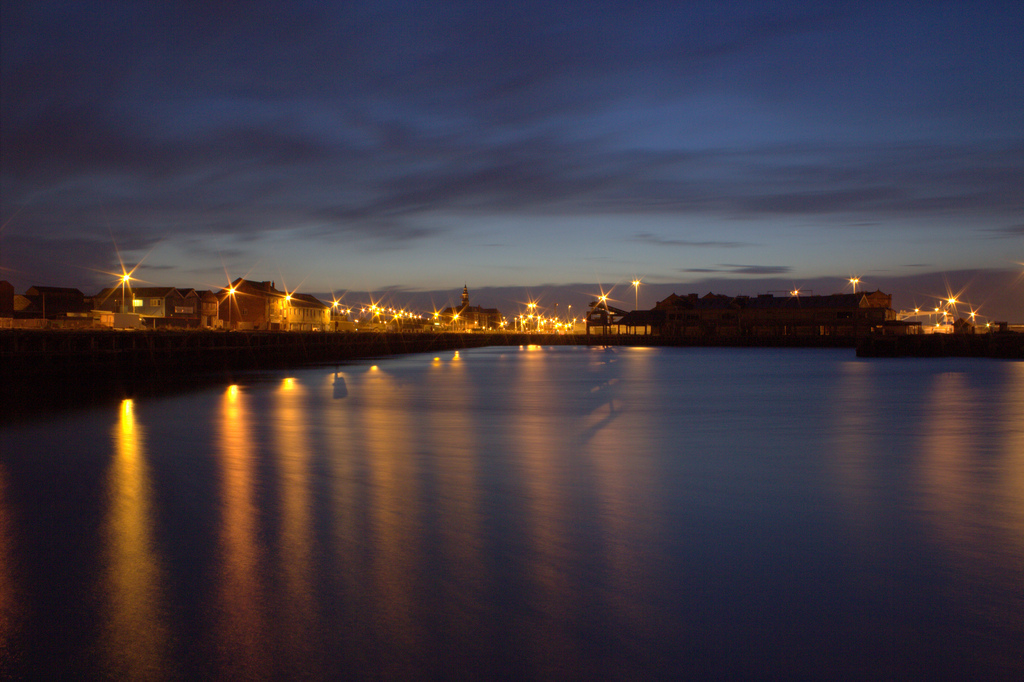
I usually leave work around 7pm if we are not hosting an evening event here or a new art exhibition, then head home to my gorgeous wife who has got used to me saying absence makes the heart grow fonder. In the last year I have lectured at London Business School to their MBA students on Managing Change.
What’s your greatest/most memorable professional moment been, so far?
I don’t think there has been a moment as such; I am really proud of Forman’s. We have a great team and we really do care about what we do. A food marketing consultant came to see me a few years ago and after a tour of the smokehouse she said to me that she has spent the last twenty years of her life advising food businesses and trying to come up with witty lines, heritage stories, compelling sales messages and so on; with us, there’s nothing to dream up, it’s all real.
Real heritage, quality products, traditional approach. We have won awards, but the greatest award is being able to supply demanding customers day after day, year after year without complaint. Our oldest customer is Wilton’s Restaurant in Jermyn Street; we have supplied them for nearly 100 years.
During the Olympics, we created a hospitality venue called Fish Island Riviera and 3000 people came to us on the closing night. So many people came up to me and said ‘Mr Forman, can we tell you, this is the best night of our lives” That was extremely touching.
What advice would you give to aspiring food & drink entrepreneurs who’d want the kind of results that you’ve had?
Don’t expect it all to happen quickly. It takes seven years to build a business, and a lot longer to build a reputation. It can also be lost overnight by some careless decisions. Business today is not just about the bottom line, it’s about brands and sticking to the brand philosophy throughout everything you do.
If you don’t really believe in what you are doing it’s going to be much harder to make a success of it.
What’s the biggest challenge you’ve had, how did you overcome it, and what did you learn from it?
Within the space of five years we had a fire which burnt down two thirds of our factory. We rebuilt it, the place where we had been for forty years. Within a year, the local river overflowed and our new factory was one metre under water, so we built a new factory again close by. Within a year of building that one we were told we would have to move because of the Olympics.
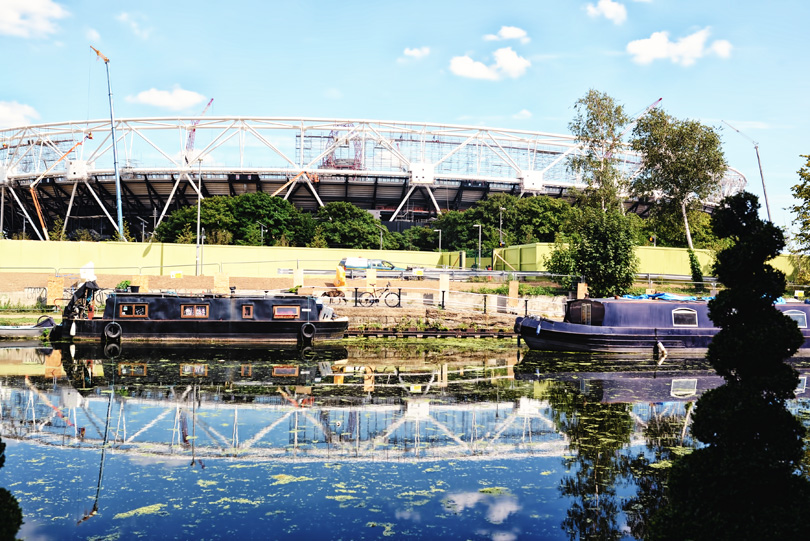
So a fire, a flood and a compulsory purchase, all in five years, is about as bad as it gets. What we learned is that it doesn’t pay to plan too rigidly in business. You have to know where you want to get to, but you need to be flexible with the route. People who plan are setting themselves up for disappointment as life generally doesn’t go to plan; and more importantly when you are so focused on your plan, you miss all the opportunities sailing by each minute of every day.
Crises provide opportunities and force decisions which can often take businesses years and years to realise they need to make.
Who’s the person who’s most inspired you in your work – food industry or otherwise. Is there anyone that you draw inspiration or strength from? Do you have any specific influences?
I was a great Maggie Thatcher fan; she believed in self-reliance and hard work. A green grocers daughter she understood what it meant to make the books balance and live beyond one’s means on piles of debt. I am a libertarian too and detest bureaucracy and jobs worth culture.
As a free-marketer liberal, people often think it’s odd that we engage with the left leaning art community around us, but there are different shades of right as there are different shades of left, and in our case we both share a disliking of being told what to do by authority; the political colour may be different but the tone is the same, so we blend well.
What do you enjoy most and least about what you do?
I enjoy meeting new people. I enjoy telling people that I smoke salmon and seeing the delight on their faces, and even greater delight that I’m not a banker or lawyer. [Ed: legit] I enjoy coming up with new business ideas, which I have far too many of. I don’t like the bureaucracy of business and government regulation which makes business tougher and tougher every day.
Perhaps if candidates were not allowed to stand for Parliament until they were aged forty and people could only join the civil service after five years working in a private business, we would have a far more successful economy, not based on a housing bubble and ridiculously low interest rates. Without business we have nothing.
Business creates the jobs which allows us to pay for our health, education, defence and so on; so why do we allow a political class that stifles it?
If you could cook anything for anyone, anywhere you chose – who would you pick, where would you do it and what would you cook for them?
I once did some business with a wily old, multi millionaire, maybe billionaire Lebanese caterer, called Albert Abela. We were talking about a hotel project in Ukraine. After a very pleasant first meeting and tea at his house, his parting comment to me was….”You know Mr Forman, I wish Stalin were alive today”…. I was horrified and frightened at who I might be getting commercially into bed with.
“You know why?” he continued. I said “No why, Mr Abela?”, to which he retorted… “Because I’d love to see him killed”. Brilliant. So the question is, would I prefer to have breakfast with Adolf Hitler in 1933 Berlin and cook him an arsenic omelette; or would it be a sensual supper with Penelope Cruz on a deserted island, anywhere, anytime? Can I have two choices?
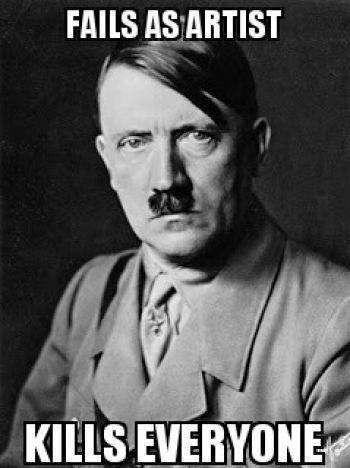
What’s your ultimate aim and goal for your business? If you could achieve anything with it, what would you pick? Money and reality are no obstacle, so shoot for the moon…
Forman’s is a small business and people think we are much bigger than we really are. We kick way above our weight in terms of the publicity we receive and the media interest we garner. To me this say that we have scope to grow into that size. People love our products and our approach.
We rarely lose business because of poor quality or poor service and if we do get it wrong we are always pleased to hear what’s gone wrong so we can ensure it doesn’t happen again. The only reason we don’t sometimes win business is because our products are more expensive, but they would be as they are simply more expensive to produce and we want to be in business in future. However, once customers try our products they realise the expense is worth it.
For anyone that makes dinner parties, Forman & Field is a revelation, almost like a personal catering service. We don’t produce anything until the order comes through. So what we do we want to achieve? More of the same really. We are happy to leave global domination to McDonalds!
Where next for you and the business?
On the smoked salmon front, more of the same. I would like to travel more and introduce even more of the world to Forman’s. Having said that, we ship from Kuwait to Kazakhstan, New York to New Delhi, and even a little to the French. With the Olympic Park opening, I could envisage a time when our whole top floor venue becomes a giant Forman’s restaurant.
London is without question the capital of the world; East London is the cool capital of London [Ed: Well, we’d debate that…] and Forman’s are in the heart of it all and have been for over 100 years, perhaps our time has finally come.
And we always ask three customary ridiculous questions…
If, for some reason, you were forced to turn your business into a travel agency, what would you call it, what types of holidays and locations would you specialise in and what would your game plan be?
Wonka Food Tours, focussing on food producers. There are so many wine tour holidays nowadays and even holidays based around food markets, restaurants and so on, but not nearly enough on artisan food producers. I think people would love to spend a day in the factory, slicing smoked salmon, or working on a farm, or in a patisserie kitchen.
If you had to have any character from Greek mythology come and work with you at the business, who would you employ?
It would have to be Poseidon. If we had control over the seas and rivers, we could arrange for the salmon to swim right up to our bay; goods receiving bay, that is.

If you had to found a new country based around Formans’ principles, what would you call it, where would it be, what would it’s capital be called and what would it’s chief export be? (would smoked salmon be too obvious?)
I would call is Realand. It’s capital would be Realcity. It would be somewhere where the sky is always blue and it wouldn’t export, as it would want to deprive its citizens of an ounce of its own reality.